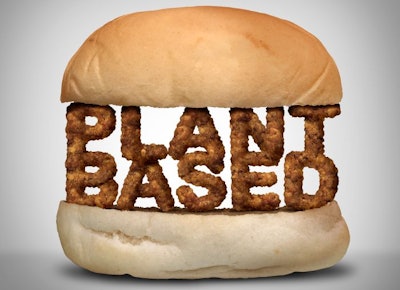
Meat producer Danish Crown Group has stepped into the alternative protein market with new plant-based meals.
The brand Den Grønne Slagter, or The Green Butcher, offers eight new plant-based prepared foods including veggie mince, veggie meatballs, veggie nuggets, an Asian-inspired noodle dish with vegetables and veggie bites, a veggie mince burger and a breaded burger with spinach and cheese.
“This makes us very proud indeed. Especially because after only four months on the market, 5% of all Danish consumers have already bought our plant-based products. The numbers are quite remarkable for a new product range in the food industry,” said Mette Færch, head of marketing and innovation at Danish Crown. “As a result, we’re already in the process of adding new plant-based products to the range, and our ambition to be market leader among producers of plant-based meat alternatives in Denmark is clear.”
The company is also dedicated to offering affordable plant-based alternatives to be accessible to as many consumers as possible, according to Færch.
Den Grønne Slagter is part of Danish Crown’s commitment to the UN 2030 Agenda for Sustainable Development for which the company has set carbon emission reduction goals. The first milestone is to reduce the carbon footprint from meat production 50% by 2030 which will be one step closer to the primary goal of net zero carbon emissions by 2050, according to the company website.
Climate change and global meat production
According to a study in food research journal Nature Food, global food production produces 17.3bn metric tons of greenhouse gases a year – 35% of annual global emissions. And 57% of those emissions are from livestock production.
And according to another study from Aalto University in Finland, if global emissions continue to progress as they are then a third of global food production will be at risk by the end of the century.

















